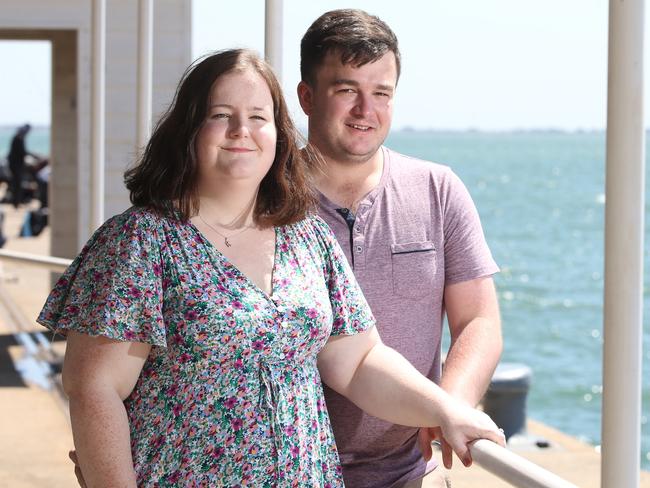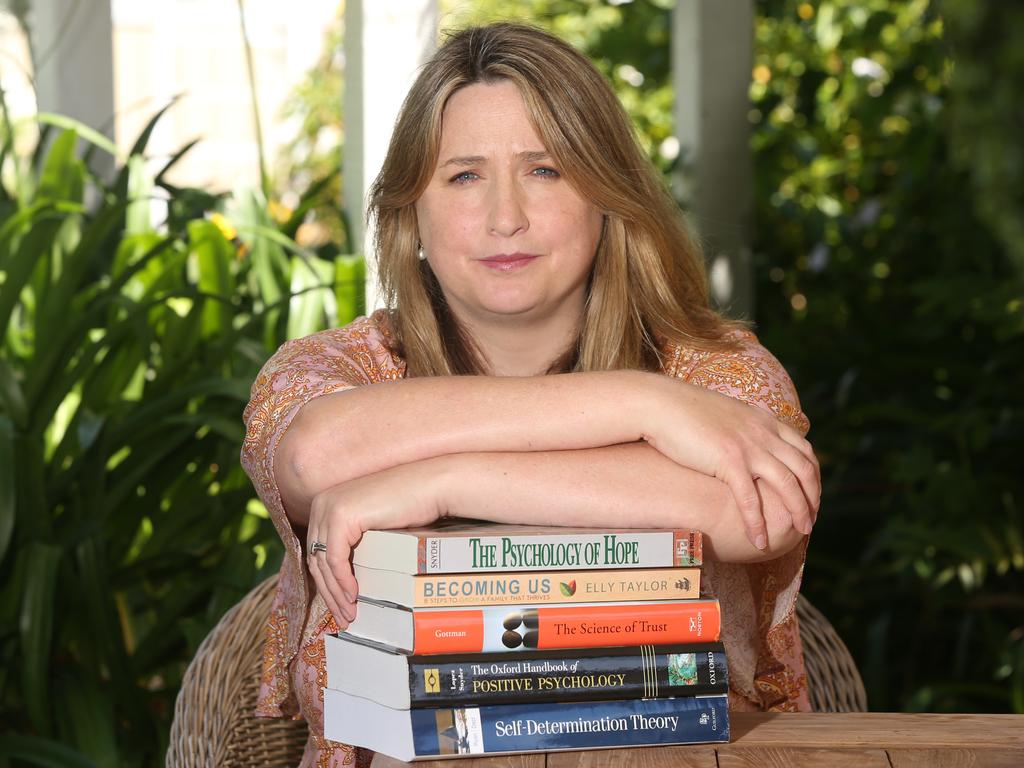Geelong couple details difficult journey of IVF and stress of shifting goalposts amid Covid
IVF treatments will soon be back on in Victoria and a Geelong couple has detailed their journey, the stress of shifting goalposts, and why the process is anything but ‘elective’.
Geelong
Don't miss out on the headlines from Geelong. Followed categories will be added to My News.
For East Geelong woman Katelyn Hughes IVF treatment never felt elective.
That is despite the since overturned decision to include IVF among a list of surgeries deemed non-urgent in the wake of growing Covid-19 hospitalisations.
Ms Hughes who is battling unexplained fertility issues said while IVF treatments have been reinstated across the state, the pain felt by those going through the invasive journey will continue for some time.
“It’s disheartening that it came under the elective category, because it’s not anything someone would elect to go through,” she said.
Ms Hughes, who has been trying to fall pregnant for three years, was in the process of preparing for her second cycle when news of the ban first broke.
“It’s not as simple as flicking off a switch,” she said.
“A lot of physical, mental, emotional and financial preparation goes into the months before a round of IVF.”
The controversial decision was overturned last Thursday after an online petition attracted more than 110,000 signatures.

The state government confirmed all IVF services would immediately resume while hospitals would increase their capacity to allow procedures to return from 11:59pm on January 25.
With the IVF journey constantly misunderstood and misrepresented, Ms Hughes said it was important to continue to educate others on the challenges that come with assisted fertility treatments which she has described as prolonged grief that can come after each failed cycle.
“Three years is obviously a long time to put yourself through so much physical and emotional stress and then the stress it puts on the relationship, it’s not a decision we take lightly,” she said.
“Through the pandemic the goalposts keep changing, there is the added stress of doing a Covid-19 test a few days before egg collection and isolating until the appointment and a lot of planning goes into organising time off work.
“Going through my first-round last year my husband wasn’t able to come to any appointments, so he was never able to come and experience it or support me.”
IVF - in vitro fertilisation - involves a series of procedures starting with the patient injecting hormones to stimulate egg development.
Mature eggs are then retrieved from the ovaries and fertilised with sperm samples to form embryos which are given at least a few days, if not frozen to grow before transferring them into the uterus.
According to IVF Australia patients under 34 years old may have up to a 38.8 per cent success rate per fresh embryo transfer or 33 per cent if frozen.
Their research further showed patients over 43 years old had up to a 5.2 per cent success rate per fresh embryo transfer or 18.4 per cent for a frozen transfer.
Renowned fertility specialist and chief executive officer of No. 1 Fertility, Dr Lynne Burmeister said egg freezing surged by 200 per cent at her clinic during the pandemic despite the major disruptions.
While patients who had begun treatment before January 6 could continue with their cycle along with people of advanced age and particular gynaecological conditions, Dr Burmeister recalled a time during the first lockdown when all fertility services were put on hold.
“I remember it like it was yesterday,” she said.
“It was a Friday in 2020 and we were told all cycles had to stop regardless of what stage they were at.
“We were ringing patients telling them to stop their medication and by Monday the decision was reversed to say if you are currently in cycle you can continue, but you can’t just stop medication for two days and then continue.
“Patients wasted hundreds of dollars on medication.”
Dr Burmeister was able to play a vital role among a group of Victorian IVF directors who worked towards overturning the government’s ban on fertility treatments.
“IVF doesn’t actually use a lot of resources,” she said.
“The patients are usually in their 20s to 40s, medically well and when they come in for day surgery it basically takes 15 minutes to collect the eggs then they go home.
“They are also doing rapid test before admissions.”
In New South Wales, IVF treatments were allowed to continue despite the recent and ongoing surge in Omicron cases, which is a point the board of directors raised in their arguments.
At the time of the ban Ms Burmeister recalled how hard it was telling patients they would not be able to start their cycle, with many still unable to go ahead this month due to the short notice.
“I felt quite mean telling them they can’t start their cycle this month,” she said.
“I got off the phone with a woman in her 30s who couldn’t do IVF this month even though she was more likely to have success then a 40-year-old who could start.”
Owner of Happy Minds Psychology in Ocean Grove, Sarah-Jayne Duryea has been working within the field of peri-natal counselling for up to eleven years.
“The IVF space specifically is something that has just grown and grown, it has become a personal area of passion of mine working across infertility, pregnancy, post-partum and parenting,” she said.

Ms Duryea said people going through assisted fertility have faced a double disruption with the second ban on IVF treatments as well as the more general changes and restrictions of the pandemic.
“Feelings of powerlessness, helplessness, frustration and anxiety when undergoing assisted fertility comes with the territory of having something that isn’t guaranteed and something that you desperately want,” she said.
“If you layer on top everything else happening in the current landscape, you have even more uncertainty and anxiety.
“At the essence when looking at fertility, people feel the weight of time against them and they are pushing for things to move as quickly as possible, but they have to go with the cycle of their bodies and have not actually been allowed access to that treatment at times.”
The January 6 announcement enforcing the statewide restrictions was the second major disruption to assisted fertility treatments since the pandemic began in 2020.
“From what my clients have reflected back to me, they feel it is worse now, like there is no end in sight,” she said.
“When going through assisted fertility your whole life is geared towards the likelihood of getting pregnant or cycling treatments and the calendar gets really full so suddenly when there is a pause on something like IVF it has a really huge knock-on effect.
“I tell my clients it’s a marathon, and it will test your abilities to keep yourself steady.”
More Coverage
Originally published as Geelong couple details difficult journey of IVF and stress of shifting goalposts amid Covid





